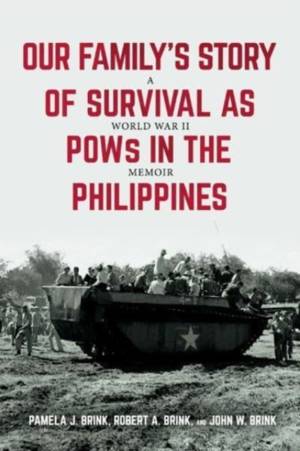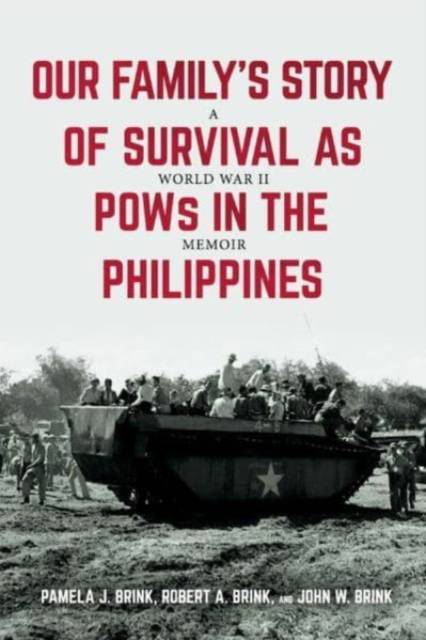
- Retrait gratuit dans votre magasin Club
- 7.000.000 titres dans notre catalogue
- Payer en toute sécurité
- Toujours un magasin près de chez vous
- Retrait gratuit dans votre magasin Club
- 7.000.0000 titres dans notre catalogue
- Payer en toute sécurité
- Toujours un magasin près de chez vous
Our Family's Story of Survival as POWs in the Philippines
A World War II Memoir
Pamela Brink
Livre broché | Anglais
22,45 €
+ 44 points
Description
"Our Family's Story of Survival as POWs in the Philippines," is a dramatic and engaging story told by three siblings who were prisoners of war in the Philippines as children. The structure gives the book a layer many don't have, and while some would be concerned three points of view might be redundant, the different styles and perceptions actually make the three views more interesting than one view would be. The "lead author," Pamela, does a good job of also mixing in research and detail where needed, since the other authors, particularly Bill, weren't aware that a book was in the future. The back matter - including Claire Wislizenus's account - enhances the story further. Readers will also appreciate the fact the book doesn't end when the family leaves the Philippines, but follows them to their adult lives. Poignant moments in the book aren't only the big ones involving human death and war, but the small ones. What is it about a dog's death that's so heartbreaking? The account of Jerry dying of a broken heart, as Bob put it, and of sitting by the gate waiting for the family to return in Pam's account, is one of the book's more poignant moments. Perhaps because it's an example of how love and loyalty are so tested by war and how it twists normal life. Bob's description of how it feels to be truly starving should be a wakeup call for readers who use the term so lightly, and the fact the lack of food had such extreme effect on the family in later years is telling. The footnotes and backup material give the book credibility, and while not necessary, are a huge help for readers who want to know more about this overlooked piece of history.
"Judge, 25th Annual Writer's Digest Self-Published Book Awards."
"Judge, 25th Annual Writer's Digest Self-Published Book Awards."
Spécifications
Parties prenantes
- Auteur(s) :
- Editeur:
Contenu
- Nombre de pages :
- 252
- Langue:
- Anglais
Caractéristiques
- EAN:
- 9781098393045
- Date de parution :
- 05-11-21
- Format:
- Livre broché
- Format numérique:
- Trade paperback (VS)
- Dimensions :
- 154 mm x 230 mm
- Poids :
- 417 g

Les avis
Nous publions uniquement les avis qui respectent les conditions requises. Consultez nos conditions pour les avis.






